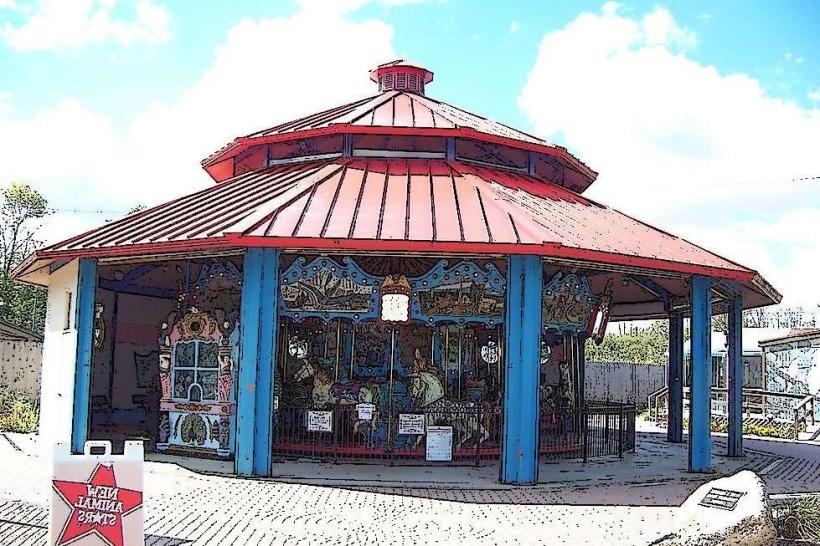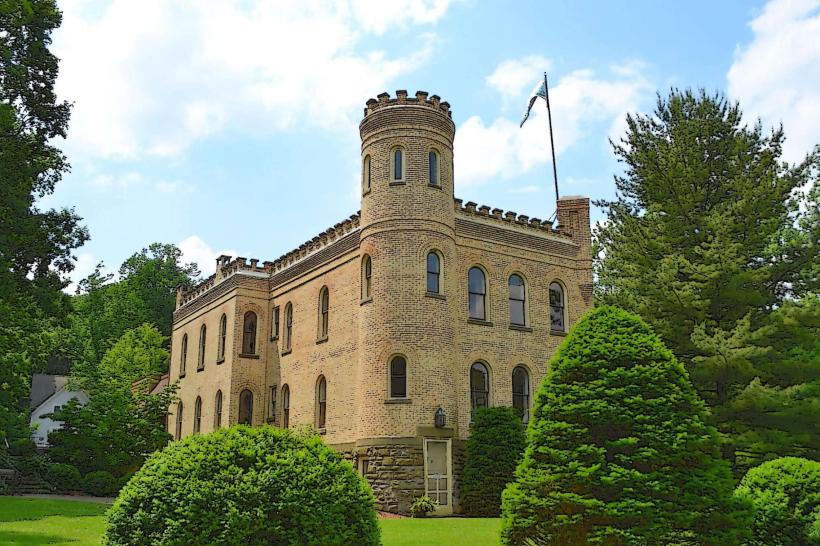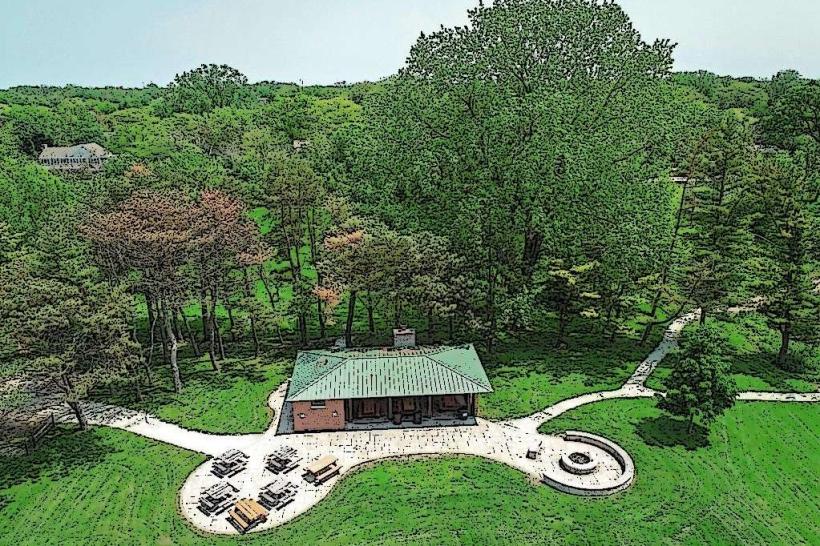Information
Landmark: Japanese Cultural Center and Tea HouseCity: Saginaw
Country: USA Michigan
Continent: North America
Japanese Cultural Center and Tea House, Saginaw, USA Michigan, North America
The Japanese Cultural Center, Tea House, and Gardens of Saginaw is a peaceful and culturally rich destination situated at 527 Ezra Rust Drive in Saginaw, Michigan. This center serves as a significant symbol of friendship and cultural exchange between Saginaw and its sister city, Tokushima, Japan, a relationship established in 1961 that culminated in the creation of the Tokushima-Saginaw Friendship Garden in 1971. The site encompasses three beautifully maintained acres along the shores of Lake Linton, offering visitors a serene environment that embodies traditional Japanese design and philosophy.
At the heart of the center lies the Awa Saginaw An Tea House, completed in 1986. This tea house is an authentic example of the sukiya architectural style, constructed with traditional Japanese techniques and materials by master carpenters who traveled from Japan specifically for this project. Its authenticity and craftsmanship make it one of the most genuine tea houses found outside Japan. The tea house is not only an architectural marvel but also a cultural space where visitors can experience the essence of Japanese tea ceremony traditions in an intimate setting.
The gardens surrounding the tea house are carefully designed to reflect classic Japanese aesthetics and garden principles. They include iconic features such as delicate weeping cherry trees, graceful stone lanterns, a picturesque vermillion arched bridge spanning a gently flowing stream, and a soothing waterfall. These elements come together to create a landscape that encourages contemplation, harmony, and respect for nature - key tenets of Japanese garden art.
Visitors to the center can enjoy various programs and activities that deepen their appreciation of Japanese culture. Public tea ceremonies take place every Saturday at 2:00 p.m. from April through October, offering participants an opportunity to observe or partake in this highly ritualized and refined practice. During the colder months (November through March), tea ceremonies continue on the second Saturday of each month when weather permits, maintaining the year-round connection to tradition.
For those seeking a more interactive experience, the center offers the Tea & Tour, a 30-minute guided introduction to the tea house and gardens, which culminates in serving green tea accompanied by traditional Japanese sweets. This program allows visitors to engage with the cultural significance of the tea ceremony and the beauty of the garden in a personal and educational manner.
Additionally, the center hosts Touch of Tea Workshops, small-group sessions limited to six participants. These workshops provide hands-on instruction in preparing matcha (powdered green tea) using authentic Japanese tools and techniques. Accompanied by seasonal Japanese sweets, the workshops aim to immerse attendees in the sensory and ceremonial aspects of tea preparation.
The center also supports the art of bonsai, offering Bonsai Workshops that teach the care, styling, and philosophy behind this miniature tree cultivation. These sessions, held periodically, attract enthusiasts eager to learn the meticulous and artistic skills involved in bonsai.
The Japanese Cultural Center, Tea House, and Gardens functions as a tranquil cultural haven that fosters intercultural understanding and appreciation. Its authentic structures, thoughtfully designed gardens, and educational programs provide visitors with a meaningful connection to Japanese heritage and the unique bond between Saginaw and Tokushima. The center is open from April 1 through October 31, Tuesday through Saturday, between noon and 4:00 p.m., welcoming visitors for self-guided tours of the gardens free of charge during these hours. Special events and programs offer added layers of cultural immersion, making it a valuable destination for both locals and visitors interested in experiencing Japanese traditions and aesthetics in Michigan.










